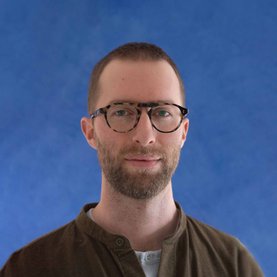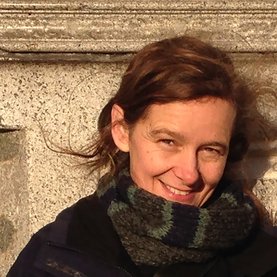ADS1: The Open House: Experiments in Collective Living
Jump to
In 2024/25 ADS1 will explore new approaches to collective housing. In response to contemporary threats of material scarcity and social precarity, architecture has been increasingly framed in terms of preparedness, resilience and relief. Indeed, the mounting catastrophes we now face have eroded the idea of architecture as an aesthetic, cultural practice, to reveal a discipline that is rooted more in mere survivalism.

A variety of precedents will inform the studio this year as we seek relationships between culture, identity and architectural form. (Plans extracted from Living and Working by Dogma. MIT, 2022)
Studio Tutors: Matthew Blunderfield & Cathy Hawley
Housing is about survival, drawing boundaries that protect us from a hostile world. And yet the home is also a cultural engine, a formative microcosm that both reflects and transforms society. The lives we lead now, and the spaces we live them in, are the product of architectural experiments, although these experiments have by and large led to unsatisfactory results. Increasingly disconnected from our neighbours and families, we are living through an epidemic of loneliness, with more and more people ageing alone. At the same time, the fantasy of ‘community’ the internet once stood for has given way to atomisation and political division.
It is clearly time for new experiments in living together. This year we will learn from architects and residents who are deeply involved in collective housing, questioning our preconceptions about privacy, ownership and communality. Together we will explore histories of shared domesticity, rebuilding our own studio as a living room; a salon for collective exchange. Most crucially, we will approach architecture as a site of critical interactions – across aesthetic experience, social formation, physical construction and political action – as we pursue new forms of individual and collective life.

Interior photographs of 12 Tolmers Square in 1975 from Nick Wates with Mae Dewsbery and Caroline Lwin, eds., Tolmers in Colour: Memories of a London Squatter Community
Live Project: Living Room
With Badweather
Where do we make our work? How do we share it? How wide are the tables? Where could a couch go? What is the view like? How do we sit when we talk as a group? What makes a convivial studio? How do we work with what we’ve got? Where do the materials go next?
Design is best learned through doing. This year, our live project will mark the beginning of the first term by inviting students to take an active role in fitting out their empty studio space alongside the architecture collective Badweather. This design exercise will initiate year-long conversations about the pleasures and challenges of collective living, working and being together.

PIPELINE by Badweather (2019-ongoing) – a floating communal hearth made from reused polycarbonate corrugated roofing. Part of a series of experimental objects designed for the nightclub ‘Goodness’
Design Research: Homes Remembered
“I have three frames of reference... my mother and father... my own experience… and the frame of reference of my children. The three are stuck together.”
The memories of our elders are always on the cusp of disappearing into the undocumented past. At the same time, understanding and engaging with other voices is central to the building of community. As part of our design research this year, we will explore memories of home and belonging, of connections across generations. Students will record an interview with an older relative or friend, documenting their experiences of shared domestic spaces. Each student will produce a brief oral history that distils a spatial memory.
An act of cultural conservation and intergenerational exchange, this fragment of oral history will be transformed into a large-scale physical model that is a precise reconstruction of the remembered space. The transcript/audio and model will be presented side by side in the WIP show. Interviewees will be invited to the opening to share our space, have a drink, engage in conversations, and reflect on each others’ models and memories.

On the film set of Andrei Tarkofsky's 'The Sacrifice' (1986)
Design Research: Seminars on Housing
“In each generation the attempt must be made to wrest the tradition from the conformism that is about to overwhelm it.”
From Charles Fourier to Sophie Lewis, we will trace a history of ideas on communality, learning from traditions of collective action. Building on this, ADS1 will host a series of seminars on collective housing that connects the contingencies of architectural practice with methodologies and ideas for addressing the UK Housing crisis. The aim of these seminars is to generate and distribute knowledge that is valuable to students, architects, policymakers, and researchers who are seeking innovative approaches to collective housing.
The seminar series will invite local and international speakers into discussion with ADS1 and the students of the RCA School of Architecture at large. The aim is to mobilise architects, housing professionals, academics, and journalists to reflect on the politics and new approaches to housing production amid scarce resources and the urgent need for systemic change.
Exploring current practice in UK housing design, we will draw from international community-driven precedents, alongside the political and cultural structures and policies that underpin them. By inviting different stakeholders, we hope to broaden the debate both within the studio and the school, deepening the focus on collective housing policy and practice.

An carefully selected bibliography will inform the studio discussions and seminar series, fostering an environment of critical exchange and debate

Illustration from Homes for Today and Tomorrow published by the Department of the Environment (HMSO 1961)
Major Project: The Open House

Sam Chermayeff, Plexiglass Sauna (2018)
Each ADS1 student project will propose an alternative structure for communal life. Beginning with the nucleus of a single shared space, we will closely examine the minutiae of everyday experience: small negotiations and celebrations; domestic habits and tensions; community, privacy and proximity. All of these elements will help us define and hone our spatial and social awareness. We will then expand our attention to the scale of the building, producing comprehensive architectural projects that develop a nuanced understanding of collective living, while also taking into account speculative strategies for housing delivery and designing for social justice.
What new paths might we chart for domestic architecture? From the room, to the house, to the street to the city, we will design at each of these registers. Addressing the home as a building block of both private and civic life, we will thus pose another crucial question: where does the collective project begin and end?
Tutors
Matthew Blunderfield
Matthew is a photographer and a producer at the Architecture Foundation where he hosts the podcast Scaffold, a podcast and ongoing interview project that maps the shifting contours of contemporary architecture.
Matthew’s photography has been published in the Architects’ Journal, Superposition Magazine and the Architectural Review, and has recently featured in At Home in London: The Mansion Block, a book-length study co-published by the Architecture Foundation and MACK.
Scaffold is an ongoing interview project that maps the shifting contours of contemporary architecture. The project began independently in 2018 and became a part of the Architecture Foundation’s audio programme in 2021. With over 100 conversations recorded to date, it features emerging and established voices in the fields of architecture, art and design, and has been celebrated by Dezeen as one of the “best pieces of new architectural media.”
At the RCA Matthew teaches an M.Arch design studio with Cathy Hawley focused on establishing new frameworks of pleasure and comfort in the context of climate breakdown. He has previously taught at the Kingston School of Art and Cambridge University.
Born and raised in Vancouver, Matthew studied English Literature at the University of British Columbia and Architecture at the University of Toronto, before completing his RIBA Part III qualification from the Bartlett, UCL. He lives in London.
For more information see Matthew's website.
Cathy Hawley
ARB RIBA SFHEA is a practicing architect, a long-term associate with muf architecture/art and a founding partner at Riches Hawley Mikhail.
Throughout her career Cathy has combined practice with academic work, she currently leads ADS1 at the Royal College of Art with Matthew Blunderfield and teaches into the MArch Course at Central St Martins. Cathy is undertaking a PhD at UCA, WIP title 'Mothers making space'.
Riches Hawley Mikhail were four times Housing Design Award Winners, BD Housing architect of the Year 2009 and their Clay Field project won an RIBA Award and was mid-listed for the Stirling Prize. Goldsmith Street, a social housing development in Norwich, has been awarded the 2019 Stirling Prize.
Cathy has been the recipient of the RIBA Rome Scholarship in Architecture and subsequently a member of the British School at Rome Fine Arts Steering Committee. She has been External Examiner for MA Cities and Innovation at Central St Martins, BA Architecture at London Metropolitan University.
For more information see Cathy's website.

